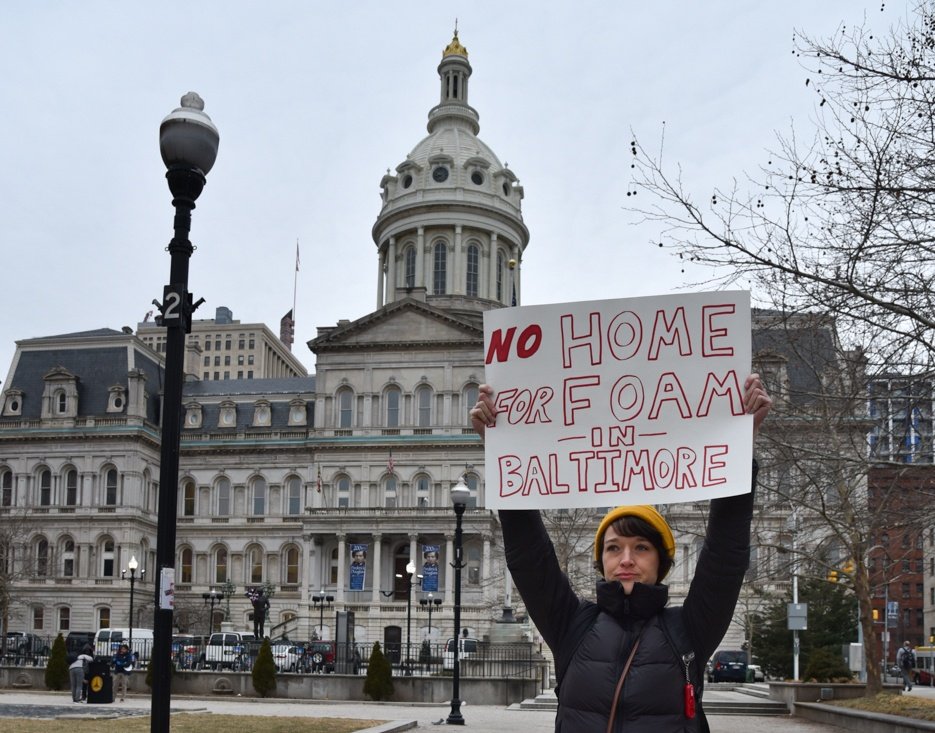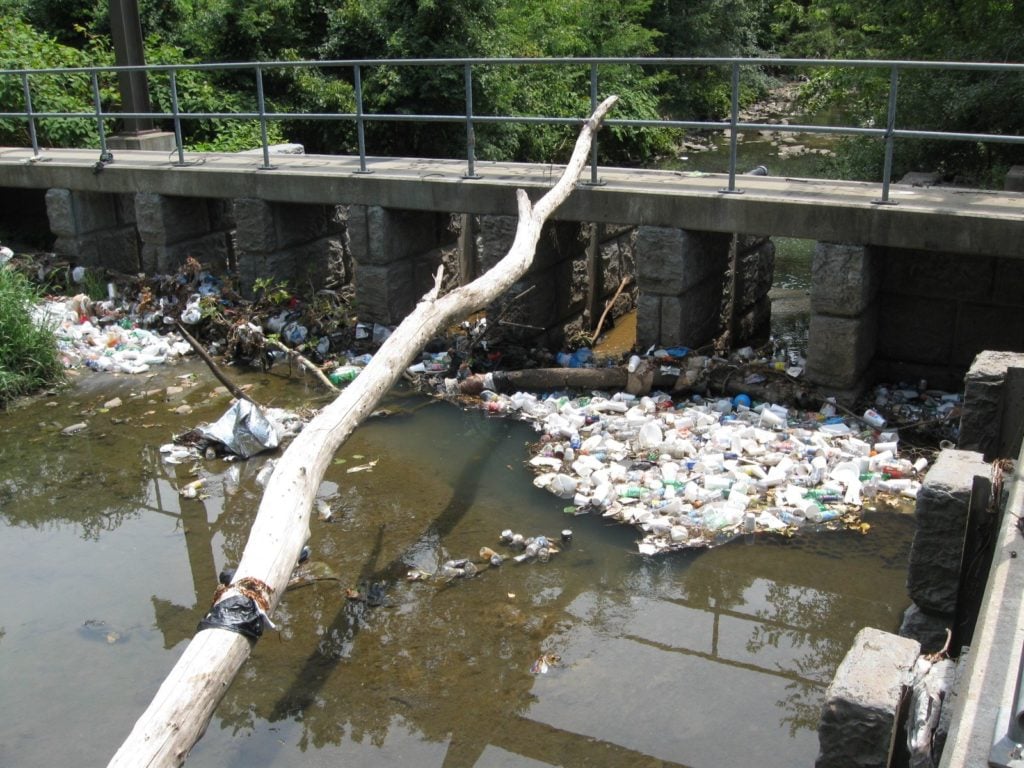Ban to Clear Baltimore Harbor of Foam Food Containers
By: Waterkeeper Alliance

Soon, the only foam in troubled Baltimore Harbor will be sea foam thanks, in large part, to the work of the Baltimore Harbor Waterkeeper program of Blue Water Baltimore. The group and a coalition of other environmental, community, and student organizations, declared victory this spring against the use of expanded polystyrene (EPS) foam containers for take-out food and drink after a unanimous vote by the Baltimore City Council to ban the all-too-common plastic.
When it reaches waterways, it absorbs 10 times more pesticides, fertilizers, and chemicals than other kinds of plastic, increasing toxin exposure to fish and other aquatic animals, and potentially making its way into the food chain.
Unlike other forms of trash, EPS foam is impossible to fully clean up. It is petroleum-based and not biodegradable, so it crumbles into smaller and smaller pieces each time it is touched or disturbed. When it reaches waterways, it absorbs ten times more pesticides, fertilizers, and chemicals than other kinds of plastic, increasing toxin exposure to fish and other aquatic animals, and potentially making its way into the food chain.
“Blue Water Baltimore worked long and tirelessly with a group of passionate public-school students and eight first-time councilmembers willing to stand up to the American Chemistry Council and plastics-manufacturing companies to protect the harbor and public health,” said Baltimore Harbor Waterkeeper Angela Haren.

Baltimore City students, organized by the student-led organization Baltimore Beyond Plastics, and the Baltimore Harbor Waterkeeper team canvassed businesses, solicited letters of support, and successfully swayed previously skeptical City Council members. And at a rally prior to the council’s hearing on the bill, they brought homemade monster figures and masks made of plastic foam lunch trays, and raised hand-painted signs. The hearing was packed with over 200 students from the second to the twelfth grades, several of whom testified. Their zeal, coupled with expert testimony from members of environmental and community groups and personal accounts of supportive business leaders, plus hundreds of signatures from other businesses, won the day.
The city’s foam ban will go into effect in the fall of 2019.